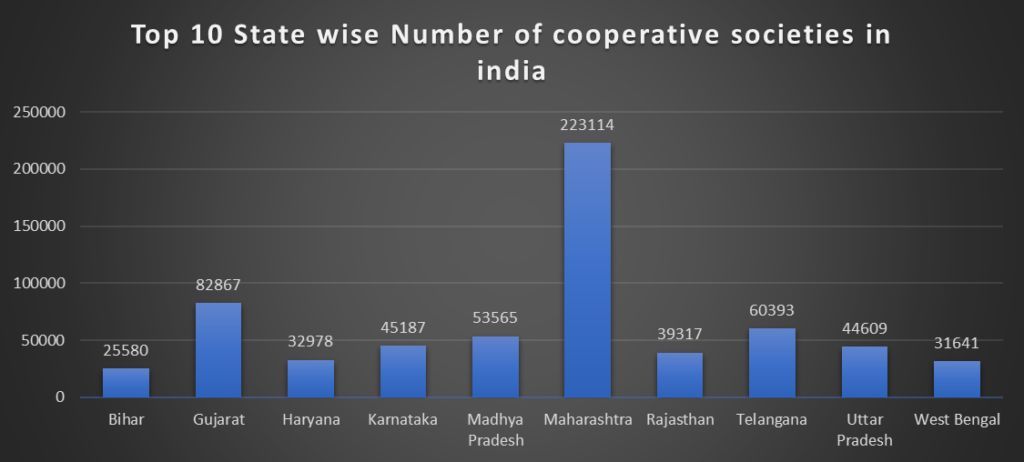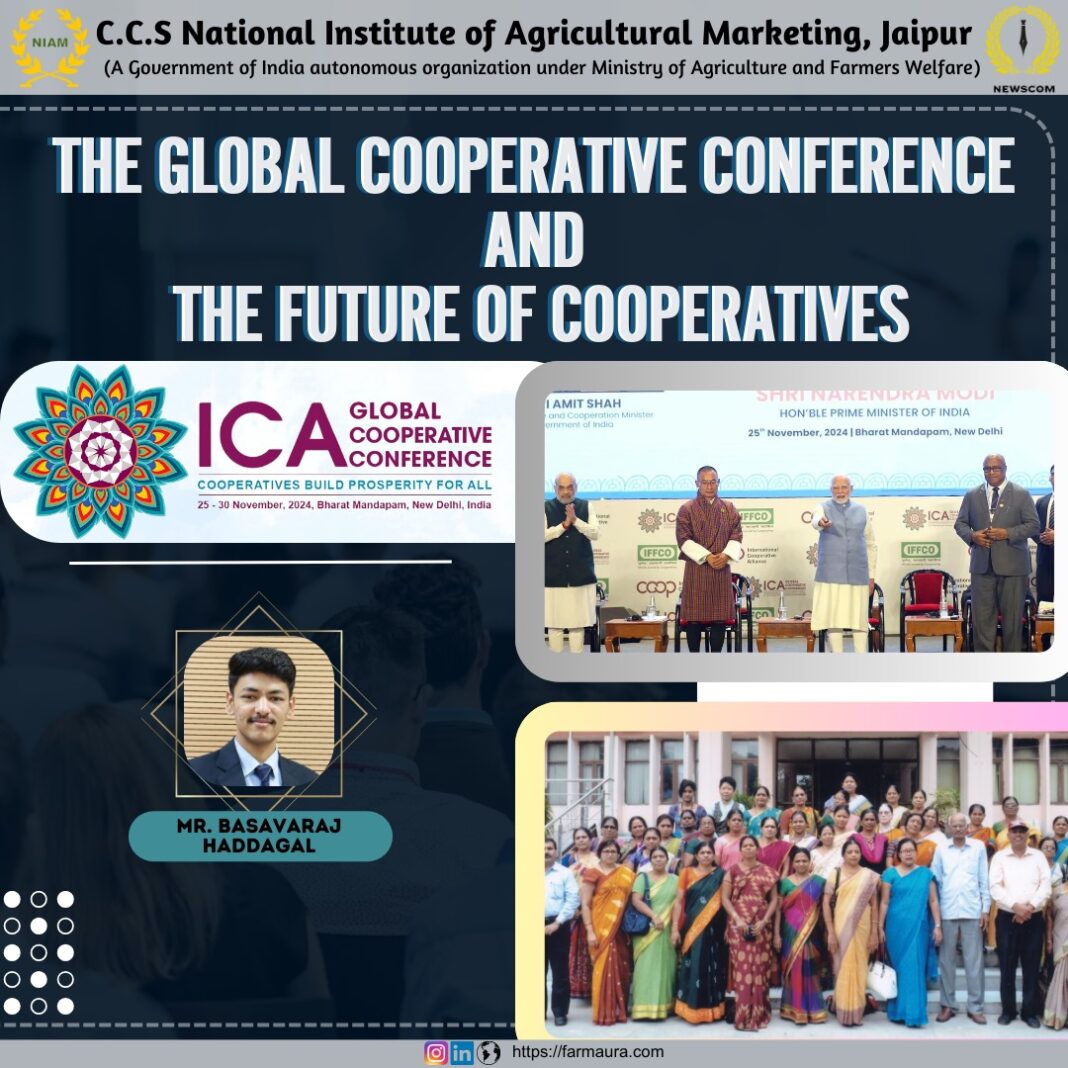–
For the first time in history, India hosted the International Cooperative Alliance’s (ICA) Global Cooperative Conference, held at Bharat Mandapam in New Delhi from November 25 to 30, 2024. This landmark event was organized by the Indian Farmers Fertilizers Cooperative (IFFCO) in collaboration with 18 other ICA member organizations from India. Together, these groups represent around 800,000 cooperatives, accounting for 25% of the global cooperative movement and serving 290 million cooperators.
The theme of the conference, “Cooperation: The Door to Prosperity for All,” resonates with the National Cooperative Union of India’s motto: “Peace, Progress, Prosperity,” and aligns with the Indian government’s vision of “Sahakar Se Samriddhi” (Prosperity through Cooperation). Over five days, the event brought together 3,000 delegates, including 1,000 representatives from over 100 countries, to discuss issues and share strategies aimed at strengthening the global cooperative movement.
A highlight of the conference was the launch of the “United Nations International Year of Cooperatives 2025” (IYC2025) by Prime Minister Narendra Modi. This global initiative, under the theme “Cooperatives Build a Better World,” aims to raise awareness about the cooperative model and its role in social and economic development. PM Modi underscored that cooperation has been embedded in India’s culture since Vedic times, playing a key role in the upliftment of rural economies. He also highlighted the role of Primary Agricultural Credit Societies (PACS), which provide essential services like fuel outlets, solar installations, Jan Aushadhi Kendras, and support for Farmer Producer Organizations (FPOs). Furthermore, with over 60% female participation, the cooperative sector is also promoting gender inclusion, with recent amendments to the Multi-State Cooperative Societies (MSCS) Act requiring women to be included as directors on MSCS boards.
Union Home Minister Amit Shah announced the creation of three new National Level Multi-State Cooperative Societies: National Cooperative Organics Limited (NCOL), Bharatiya Beej Sahakar Samiti Limited (BBSSL), and National Cooperative Export Limited (NCEL), which will expand Indian farmers’ access to international markets.

Source : Ministry of Cooperation, Govt. of India. (ON3966)
Our Commitment to the World
India’s commitment to advancing the cooperative model is guided by four key pillars of action:
- Reaffirming the Cooperative Identity
- Promoting cooperative values and protecting the cooperative identity.
- Expanding access to cooperative education and fostering creativity.
- Showcasing the impact of cooperatives on sustainable and inclusive growth.
- Enabling Policy and Entrepreneurial Ecosystems
- Developing legal frameworks that support cooperatives.
- Strengthening access to finance through cooperative banks and credit unions.
- Promoting cooperative entrepreneurship through educational partnerships.
- Nurturing Purposeful Leadership
- Empowering women, youth, and marginalized groups to take leadership roles.
- Prioritizing leadership development programs tailored for cooperatives.
- Facilitating knowledge-sharing and collaboration to drive innovation.
- Building a Sustainable and Cooperative Future
- Promoting climate action and sustainability initiatives through cooperatives.
- Leveraging technology, AI, and digital tools for growth and branding.
- Strengthening cooperative value chains and circular economies.
By focusing on these pillars, India is reinforcing the cooperative enterprise model as a people-centered, sustainable solution that places people and the planet before profit, addressing global challenges and fostering a more resilient, equitable future.

Source: Ministry of Cooperation, Govt. of India. (ON3966)
International Year of Cooperatives 2025
The UN International Year of Cooperatives (IYC2025) is a global initiative aimed at raising awareness about the cooperative business model and its contributions to social and economic development. This year-long celebration, beginning in November 2025, builds on the success of the 2012 International Year of Cooperatives and highlights how the cooperative movement can play a pivotal role in building an inclusive and sustainable global economy.
The conference provided India with an opportunity to share success stories such as Self Help Groups, AMUL, and IFFCO, positioning the country as a global leader in leveraging cooperatives for rural development and women’s empowerment.


